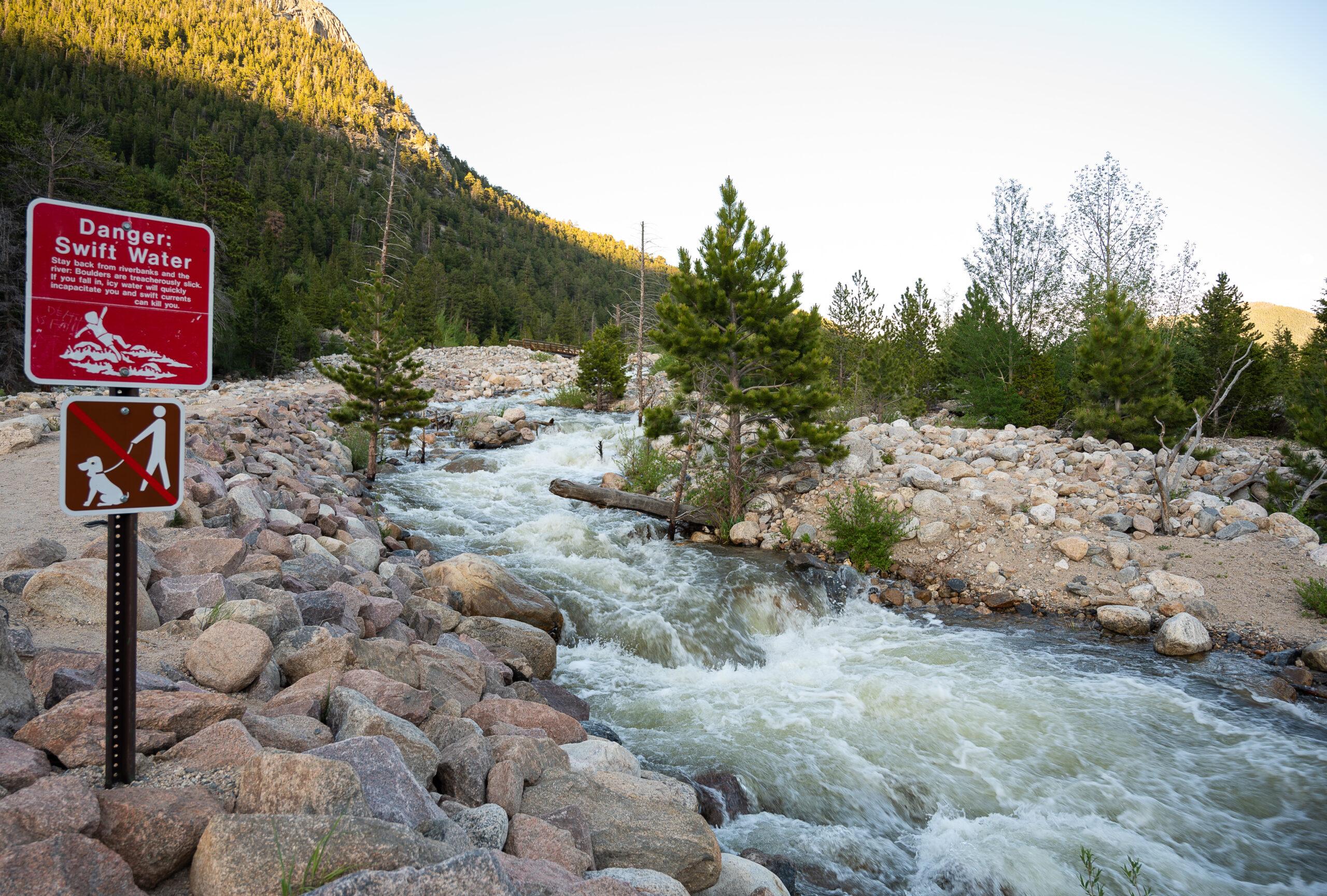
Updated at 1:20 p.m.
Rocky Mountain National Park has temporarily closed at least one trail and several access roads on the park’s west side due to flooding from snowmelt runoff.
Closures are in place for the North Inlet access road and the Colorado River Trail near the river’s headwaters. Access roads for Bowen Gulch and a bridge to the Holzwarth Historic site were also closed due to flooding.
“High temperatures have led to increased snowmelt and closures are in place from flooding on Tonahutu Creek and the Colorado River,” the park said Monday. “All rivers, creeks, and streams are running fast and high throughout the park. Use extreme caution around all bodies of moving water.”
The East Inlet Trail reopened Tuesday morning after waters receded.
The flooded roads and trail will remain closed until waters recede and a damage assessment is complete, the park said in a statement.
Monday’s high in the park reached 97 degrees. A flood advisory remains in effect for the western side of the park through Wednesday morning.
Cities from Denver to Fort Collins also saw river flows rise due to the accelerated snowpack runoff. Temperatures passed or tied record highs on Monday, reaching into the 90’s across the metro area.
The Boulder County Sheriff’s Office has also enacted temporary tubing restrictions in the St. Vrain River and Creeks due to high water flows.
The closure will take effect June 14, 2022 at 8:00 a.m. and will encompass the North Saint Vrain River and Saint Vrain Creek from Apple Valley Road to North Foothills Highway. Sheriff's deputies will post notices advising recreationists of the closure, according to a press release.
“The South Platte River Basin snowpack is expected to melt quickly with high temperatures forecast this week,” the release said. “As of Monday, the Saint Vrain River was flowing at approximately 1,000 cubic feet per second.”
Weather across the state is expected to cool off starting Wednesday. But temperatures in the upper 90’s are forecast to return for most communities again later this week, said Zach Hiris, a forecaster with the National Weather Service.
“We’ll probably see some minor flooding impacts to Rocky Mountain National Park from high runoff through the rest of the week,” Hiris said. “We get this weather pattern of high pressure over the Great Plains multiple times each summer, and we’re getting it a little earlier this year than we usually do.”









